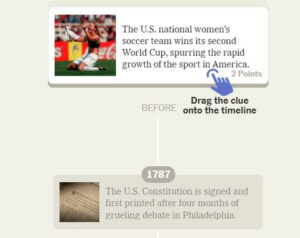I was fortunate to attend our first Primary education evening held last week. The focus was grace and courtesy in Primary school. It was an informative evening and enjoyed by all who attended. For those who were not able to attend, but are interested in understanding more, I have put together a summary of the evening below.
We began with the Characteristics of the Primary Mind with reference to Grace and Courtesy. The development of these characteristics is a six-year-long journey and includes:
Intellectual Development with children moving from concrete to abstract thought. The reasoning mind is developing an understanding of cause and effect, e.g. ‘if I do this, these things will happen’. This also includes the development of a sense of justice and fairness, starting with ‘this is not fair to me’, but also developing into what is fair for others.
There is also the Development of the Imagination, children are able to imagine and think about another person’s point of view.
Social Development is huge, children like and want to be together. Grace and courtesy help this happen in an appropriate way.
It can appear at times that grace and courtesy just don’t work! We need to look into the child’s reasoning mind. Just ‘telling off’ does not work (this is invariably adult-driven) and children cannot learn for themselves if an adult is always ‘telling’. Restorative practice is also an important part of this journey.
There are many ways of passing grace and courtesy lessons on to our Primary ākonga.
The use of stories, role plays (which are very popular and are done at least once a day), class brainstorming discussions, and reflections on why things have happened (these often happen after an event when the class gathers for a chat).
Ākong has lessons on how to get on with each other and work together as they move into the second plane of development. These are short lessons and are given to small groups when the need arises. They are important for social and emotional development as our ākonga learn how to get on with one another.
Class treaties are developed and built on at the start of each year and are different in each class. One example shared on the night was: Rights and Responsibilities. Ākonga has the right to work, eat and drink, be respected, and ask for help when needed. With rights comes responsibility. The responsibility to let others work, clean up after me, and respect and help others.
The treaties are something ākonga always refers back to – they are living documents. In each class, ākonga gets to the stage where they refer each other to the treaty when things go wrong. The treaties underpin everything that we do with grace and courtesy. You could say that grace and courtesy are the language of respect.
#Grace #Courtesy #akomanga #Staff #Blog




More Stories
Watercolor Hearts Valentine’s Craft Tutorial| Three Easy Painting Techniques
What is Montessori Learning Center? – Montessori line
Benefits of Montessori Education Principles – Montessori line